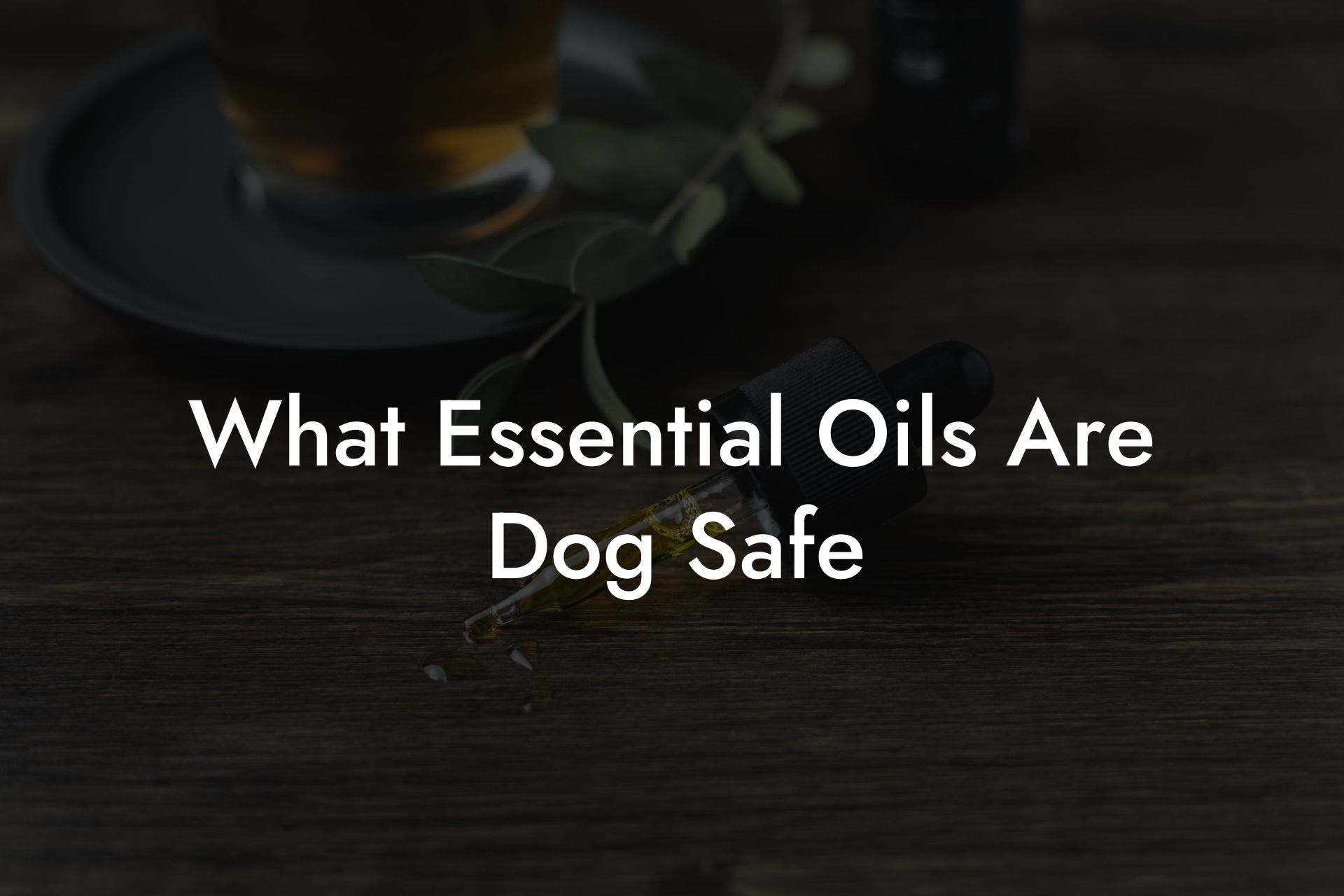As pet owners, we always want the best for our four-legged friends, and sometimes, essential oils can be a helpful addition to their overall wellness. However, not all essential oils are safe for dogs, and it’s crucial to understand which ones are appropriate and how to use them properly. In this guide, we’ll delve into dog-safe essential oils and provide useful information to ensure the safety and wellbeing of your furry companion.
Why Use Essential Oils for Dogs?
Essential oils have been used for centuries for various health benefits, and they can serve as a natural approach to support your dog’s overall health. Some potential advantages of using dog-safe essential oils include:
- Stress and anxiety relief
- Promoting healthy skin and coat
- Supporting joint and muscle health
- Boosting the immune system
Dog-Safe Essential Oils
Not all essential oils are safe for dogs, so it’s crucial only to use those that have been deemed appropriate. Here is a list of dog-safe essential oils:
- Lavender: Lavender oil is known for its calming and soothing properties, making it helpful for dogs with anxiety or stress.
- Chamomile: This oil has anti-inflammatory and calming properties that can benefit dogs with skin issues and upset stomachs.
- Frankincense: With its anti-inflammatory and immune-boosting properties, frankincense can help support your dog’s overall health.
- Ginger: Ginger is excellent for dogs with digestive issues, as it can help soothe an upset stomach and assist in healthy digestion.
- Cardamom: This essential oil is beneficial for dogs with respiratory problems and can also serve as a natural flea repellent.
Using Essential Oils Safely
When using essential oils for your dog, it’s crucial to keep safety in mind. Follow these guidelines to ensure you’re using them appropriately:
- Always dilute essential oils with a carrier oil – such as coconut oil or almond oil – before applying them to your dog’s skin.
- Consult your veterinarian before introducing any essential oils into your dog’s routine, especially if they have existing health conditions.
- Never use essential oils near your dog’s eyes, ears, mouth, or mucous membranes.
- Monitor your dog’s behavior closely for any signs of a negative reaction or discomfort, and discontinue use immediately if you notice any issues.
What Essential Oils Are Dog Safe Example:
Imagine that your dog has recently been experiencing anxiety due to a change in environment, such as a move to a new home. To help them adjust and feel more at ease, you could use lavender essential oil in a diffuser for short periods each day. Be sure to dilute the oil with water and keep the diffuser in a well-ventilated area, away from your dog’s bed or usual hangout spot. Remember to observe your dog’s behavior and adjust accordingly, giving them a break from the diffused scent if needed.
Essential oils can be a wonderful and natural way to support your dog’s health, but it’s crucial to remember that not all oils are safe for dogs. By using dog-safe essential oils, such as lavender, chamomile, or ginger, you can create a more comfortable and healthy environment for your furry friend. Be sure to consult your veterinarian before introducing any essential oils, and always prioritize your dog’s safety when using these natural remedies. If you found this article helpful, we encourage you to share it with fellow dog owners and explore our other guides on essential oils and aromacology at Oshu Oils. Don’t forget to browse our wide range of Artisan Essential Earth Oils to elevate your and your pup’s wellbeing today.





















